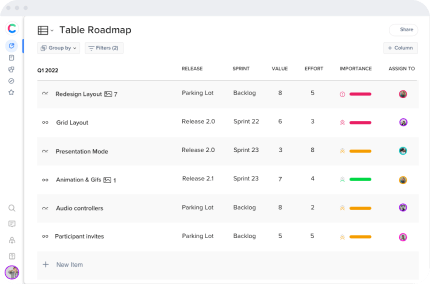What is business-to-consumer (b2c)?
Definition of a Business to Consumer Model
The term business-to-consumer (B2C) is used to describe the type of transaction when a company conducts business with a customer. B2C trading is just one of four different types of trade to explore. Business-to-business (B2B), customer-to-business (C2B), and customer-to-customer (C2C) transactions are the other three categories of transactions (C2C).
B2C initially referred to any product sold in person to individuals; however, it became associated with internet retailing following the dot-com boom. The reason is that traditional retailers have had their market share reduced in favor of online behemoths such as Amazon and eBay due to the introduction of e-commerce. These internet businesses have decreased the need for traditional retailers by bringing things directly from producers to consumers at a lower price.
Important B2C Business Models
There are five standard B2C business models to examine for online sales, each of which is defined by the organizations involved and how revenue is created.
● Direct sellers: are those who sell directly to the public. These are websites that allow users to place direct orders for products. Examples include the websites samsung.com and zara.com.
● Intermediaries on the internet: Online intermediaries do not own any of the products or services they sell; instead, they act as a link between sellers and buyers.
● Advertising-based: B2C advertising-based businesses rely on providing content and strategies to attract Internet traffic, to which they then sell advertising for other products or services. Practically every outlet that distributes free information employs this strategy.
● Community-based Businesses: also use advertising to promote their products to online communities that have been formed around shared interests. Facebook is the most well-known example. The social media platform makes money by supporting businesses in reaching out to customers as stages with pinpoint accuracy.
● Fee-based: These business-to-consumer enterprises charge a monthly or annual membership fee in exchange for services or content. Entertainment platforms like HBO Go and Netflix are examples of periodicals like Wired and The New Yorker, which both have a free-read limit before charging for their content.
Advantages of the B2C Model
There are some very unique and promising advantages of the B2C model provides:
● A Large and Diverse Market: In comparison to B2B, the B2C market is far more extensive and diverse. B2B companies have the disadvantage of targeting a smaller number of customers, but B2C companies have the advantage of targeting a more significant number of consumers. Even if you’re aiming for a specialized B2C market, this number is relatively large.
● Expansion is a lot easier now: Expansion of a B2B company necessitates a significant financial commitment and a significant amount of overhead. B2C, on the other hand, is easier to develop into new markets and niches, whether vertically or horizontally.
● Marketing Made Simple: Advertising to individuals is much easier than advertising to businesses. B2C organizations can use social media and content marketing to boost income, recruit new customers, and advertise.
● Data-Driven: Unlike the B2B sector, where gathering and using data to foresee new trends can be challenging, B2C has lots of data if used appropriately. Each person is a data mine, and when correctly leveraged, this data can provide a substantial competitive edge to a B2C company.
Disadvantages of the B2C Model
Although the B2C model is prevalent nowadays, however, just like any other way of doing business, it also has a few disadvantages:
● Increased Competition: B2C is much more prevalent compared to B2B. This is due to the cheaper costs of beginning and managing a B2C business than a B2B firm. This means that in B2C, there is a lot more competition for the same product within the same field.
● Lower Profit Margin: In contrast to a B2B firm, the products sold and prices in a B2C business are relatively small. So, one method to make up for lost revenue is to prioritize numbers above quality. In the event of fewer sales, this increases the danger of not being able to cover the costs of running the business.
● Mediators’ Presence: The B2C market is rife with intermediaries that tend to mark up products and resell them at a higher price. Hence consumers are forced to pay a higher rate than anticipated. Aside from that, it creates a chasm between customers and businesses.
● Market Segmentation: The B2C market is more subdivided than the B2B market, despite its size and diversity. Due to the large number of segments that organizations must examine, this slows down decision-making.


